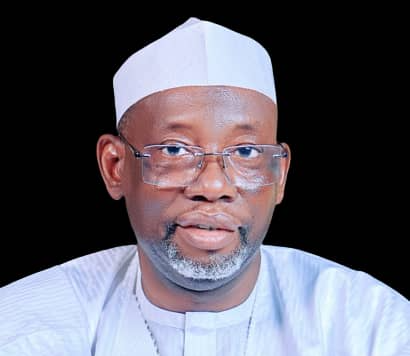There is a popular saying that charity begins at home, emphasizing the crucial role mothers play in instilling moral discipline and ensuring the proper upbringing of children.
Mothers have a significant influence in family management and raising children who can contribute meaningfully to both their families and society at large. Involving them in public policy has the potential to yield fruitful results.
Recognizing the vital role of mothers in society, the Jigawa State government has introduced an innovative initiative for establishing a Mothers Association as part of its ongoing efforts to revitalize the state’s education sector.
For years, the state has been allocating substantial budgets to education, yet it remains among the states with high rates of out-of-school children, poor learning outcomes, and other indicators of learning poverty.
The formation of the Mothers Association aims to expand community participation in the new education policy to achieve better results.
Governor Namadi introduced the Mothers Association initiative following the recruitment of over 7,000 teachers, the renovation and construction of more than 1,000 classrooms, and the allocation of over 27% of the state’s annual budget to education.
According to Professor Haruna Musa, Chairman of the State Universal Basic Education Board (SUBEB), the government plans to mobilize 16,000 mothers to participate in school monitoring to enhance safety and improve learning outcomes.
He explained that Governor Malam Umar Namadi’s administration established the Mothers Association to strengthen community involvement in school monitoring and foster a sense of ownership for better educational results.
The chairman noted that in each basic school, five mothers will be recruited, mentored, and supported to take part in school monitoring.
The Mothers Association will focus on five key areas: First, ensuring their children attend school daily with all necessary learning materials. Second, reviewing their children’s books after school to assess whether learning has taken place.
Third, each mother will champion school enrollment in their community to reduce the number of out-of-school children. Fourth, mothers will monitor their children’s safety to prevent physical molestation or security threats.”
So far, over 3,600 mothers from pilot local governments have already been trained and mentored, with plans to expand the initiative until such groups are established in every basic school across the state.
Professor Musa added that the training of Local Education Authority (LEA) gender officers and social mobilization officers from all 27 local governments was designed to enhance their capacity to effectively support the Mothers Association in achieving its objectives.
He expressed optimism that increased women’s participation and community ownership in education will help reduce the high rate of out-of-school children and learning poverty, ultimately improving learning outcomes and literacy levels in the state.
Professor Musa called on the public to support Governor Malam Umar Namadi’s efforts to revitalize the state’s education sector and ensure accessible, quality education for every child in Jigawa.
“Schools are sanctuaries for building the leaders of tomorrow, shaping the country’s future prosperity, and ensuring sustainable social and economic development. Therefore, it is very important to do everything possible to secure school environments.
The Namadi-led administration has also taken the lead in supporting the Inspector General of Police (IGP), Kayode A. Egbetokun’s School Safety Squad initiative, spending over N400 million on vehicles, office accommodations, and other equipment for the take-up of the initiative in Jigawa state.
The IGP’s initiative is built on three strategic pillars: 2 . Establishing infrastructure for rapid emergency response in schools. 2. Strengthening community participation and collaboration in intelligence gathering.
- Partnering with sister security agencies to mitigate threats and create safer learning environments.
This initiative aims to secure schools against security threats, ensuring access to education for every child in line with President Bola Ahmed Tinubu’s Renewed Hope Agenda.
In another school safety effort, the Namadi administration recruited 9,917 school safety guards in collaboration with a private security company.
This initiative is expected to enhance the safety of schools and other public facilities through trained personnel and collaborative efforts with security agencies and the public.
This bold step by the Jigawa State government underscores its commitment to safeguarding learning centers, ensuring every child has access to education in a safe and conducive environment. It sets a precedent for other states to follow.





